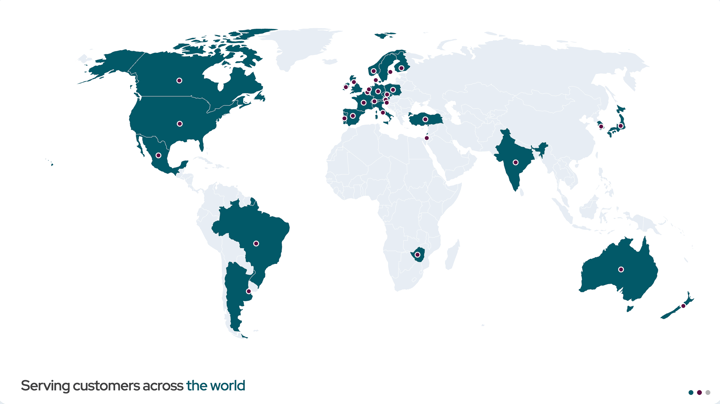Seeed integrates Mender with the reTerminal and the Dual Gigabit Ethernet Carrier Board for RPi CM4

Mender has a partnership with Seeed to provide remote management capabilities including OTA software updates, configure, troubleshoot and remote terminal access. First, we carried an integration for both the Mender Client and the Mender Server with the ODYSSEY-X86 and now there are reference integrations available for both the reTerminal and the Dual Gigabit Ethernet Carrier Board for Raspberry Pi CM4.
reTerminal specifications
The reTerminal is a HMI device with a modular design so that it is both stable and expandable. At the core of this device is the Raspberry Pi CM 4 CPU with 4GB of RAM and 32 Gbyte eMMC memory. There is also a 5-inch IPS capacitive multi-touch screen on the device with a resolution of 1280 x 720 and 293 pixels per inch. Wireless connectivity is also supported with dual-band 2.4Ghz/5Ghz Wi-Fi and Bluetooth 5.0 BLE. A cryptographic coprocessor with secure hardware-based key storage is also built into the device. There are also built-in modules such as an accelerometer, light sensor and RTC. Network connectivity is enabled through a gigabit Ethernet port and dual USB 2.0 type-A ports. There is also a 40-pin Raspberry Pi compatible header for IoT applications and the device is certified for Microsoft Azure.
Full specification and pricing details on the reTerminal can be found here .
Seeed application engineer Lakshantha Dissanayake has written an integration tutorial on using a reTerminal with Mender for OTA running a custom Linux System compiled using the Yocto Project. The tutorial can be used for a self hosted or managed implementation. The tutorial is also available on the Seeedstudio Wiki.
Dual Gigabit Ethernet Carrier Board for RPi CM4
The second new reference integration is for the Dual Gigabit Ethernet Carrier Board for RPi CM4. The Dual Gigabit Carrier Board features a Raspberry Pi Compute Module 4, Dual Gigabit Ethernet ports and dual USB 3.0 ports, and is designed for soft router applications with compact hardware designs. It sports a compact size (75x64x21mm) with rich I/O peripherals, dual Gigabit Ethernet connectors for soft router applications; camera/display connectivity using MIPI CSI, MIPI DSI and micro-HDMI interfaces; onboard dual USB 3.0 with an additional USB 3.0 9-pin header for more external ports; a micro-SD Card slot to load system image for non-eMMC version of CM4; more expandability via FPC Connector (I2C, SPI) with an external fan support with fan power connector. Power uses USB Type-C.
Full specification and pricing details on the Dual Gigabit Ethernet Carrier Board for RPi CM4 can be found here .
Seeed application engineer Lakshantha Dissanayake has also written an integration tutorial verifying that Mender works with the Dual Gigabit Ethernet Carrier Board for RPi CM4 for a Yocto build. The tutorial is also available on the Seeedstudio Wiki.
Recent articles
New Mender experimental AI-enabled feature
Mender in 2025: A year in review with compliance, security, and AI-driven growth
What’s new in Mender: Enhanced delta updates and user experience
Learn why leading companies choose Mender
Discover how Mender empowers both you and your customers with secure and reliable over-the-air updates for IoT devices. Focus on your product, and benefit from specialized OTA expertise and best practices.


